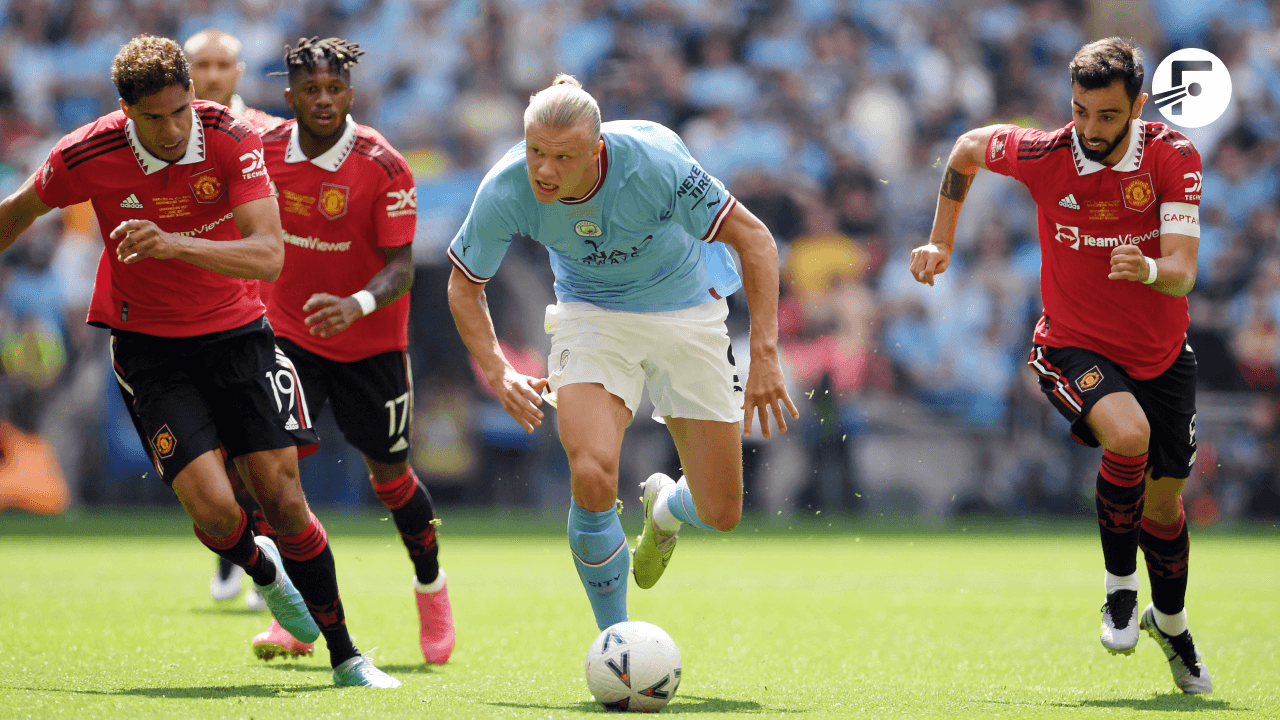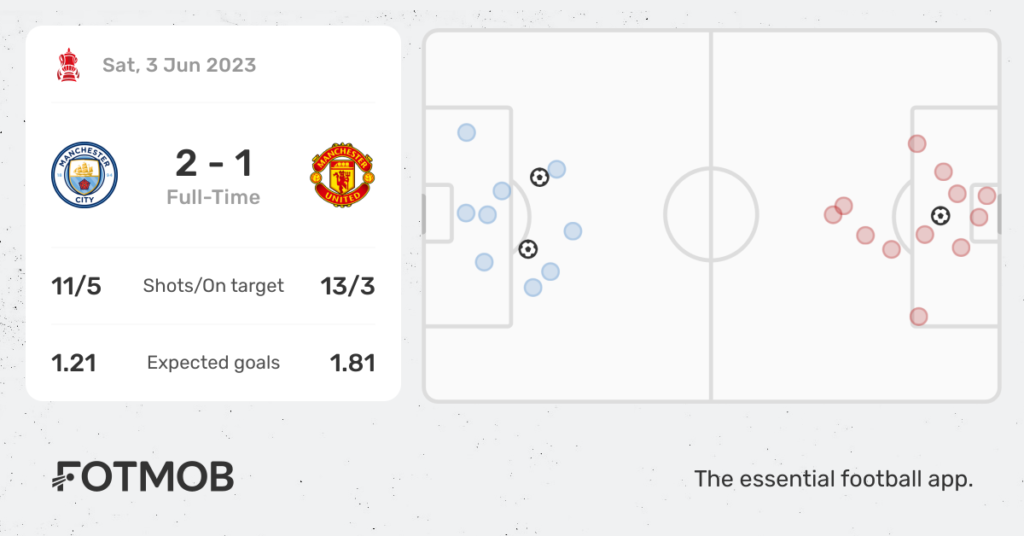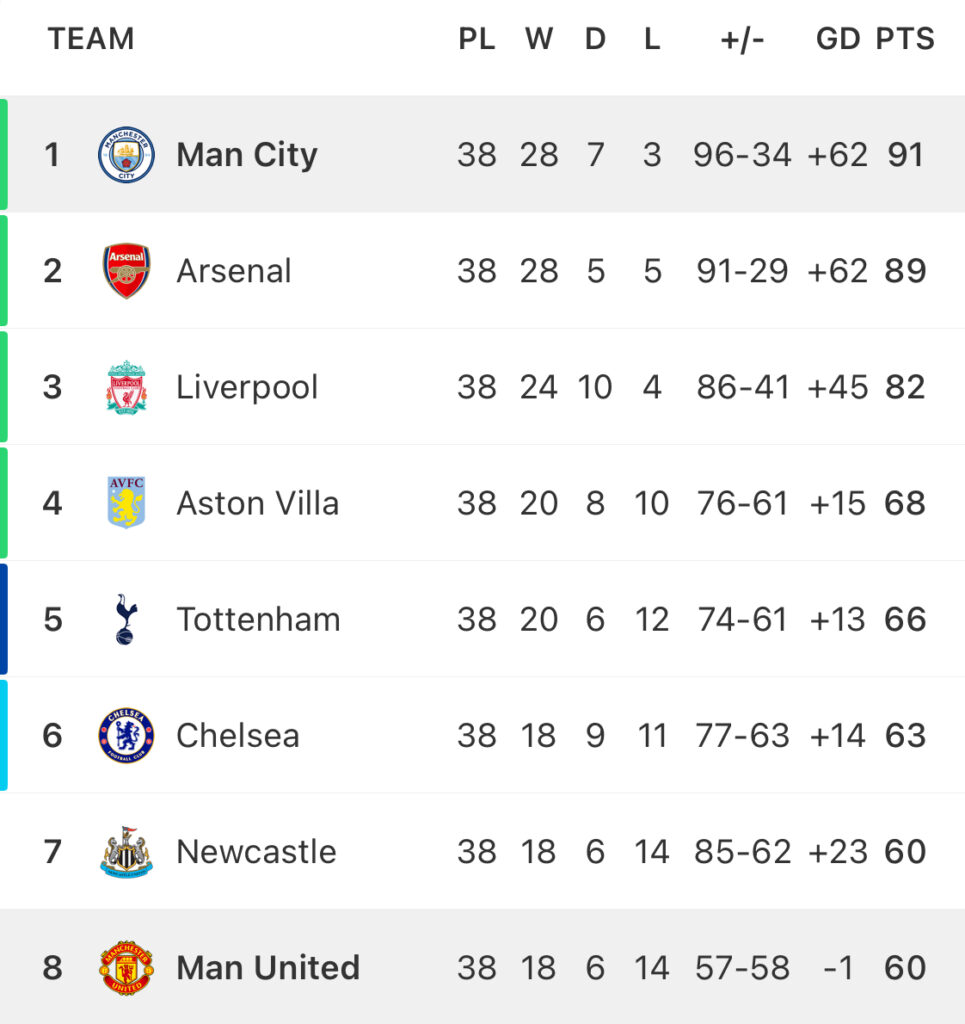Manchester derbies have a habit of taking place at Wembley these days. It was only 12 months ago that Manchester City and Manchester United faced other in the FA Cup final and the two rivals will meet once more this weekend to fight for the final piece of silverware of the English domestic season.
City got their hands on the trophy last year and are firm favourites to do so again on Saturday. Pep Guardiola and his players might not be chasing a historic Treble like they were last time, but the Etihad Stadium side are fresh from clinching a record fourth-straight Premier League title. No other English team is as well-practiced at winning big matches.
United, on the other hand, will metaphorically stagger on to the pitch at Wembley after a bruising end to the season which saw Erik ten Hag’s team fall to eighth in the Premier League table. Defeat to Manchester City would see the Old Trafford outfit miss out on continental qualification for the first time in a decade.

Saturday’s game could expose the gulf between City and United once more. The blue side of Manchester have been victories in each of the last three derbies, including last season’s FA Cup final which was much more one-sided than the 2-1 scoreline suggested. The two teams might play in the same league and the same city, but a Manchester United win would represent an upset.
Lisandro Martínez’s recent return to action has improved United’s slim chances. The Argentine has missed much of the campaign through injury and is frequently the only source of aggression in Manchester United’s backline. To stand any chance of keeping the likes of Erling Haaland and Phil Foden at arm’s length, ten Hag’s team need Martínez to be in top form.
Foden has certainly been in top form recently, scoring nine goals in his last nine games including a brace in the final day victory over West Ham that ultimately clinched Manchester City the Premier League title. The 23-year-old has already found the back of the net three times against United this season and will be a threat again at Wembley.

At the Etihad Stadium in March, ten Hag adopted a similar approach to the one that worked more than once for Ole Gunnar Solskjær at the home of United’s closest rivals. Indeed, the Dutchman set up his team to stay deep and hit City on the counter attack – and this saw United take the lead through Marcus Rashford.
Ultimately, City had the quality to play through United over the course of 90 minutes, but ten Hag could re-use this tactical template on Saturday. His options are limited due to the likelihood that United will be picked off if they attempt to go toe-to-toe with the recently crowned Premier League champions.
Right now, the two Manchester clubs find themselves in contrasting situations. Manchester City’s success has been underpinned by a clear and coherent strategy that has been years in the making. Guardiola continually evolves City’s approach to keep things fresh, but the principles of possession football remain the same.
Meanwhile, Manchester United have no principles as a club and a team. Ten Hag has failed to impose a possession-orientated game since arriving from Ajax two summers ago with United also one of the poorest sides defending against the ball. After 18 years of Glazer ownership, there is no part of the Old Trafford club that is functioning well.
Things might finally change with Sir Jim Ratcliffe and INEOS in the door as minority owners, but United face a pivotal summer in their efforts to return to the top of English football. Dan Ashworth has been poached from Newcastle United as the club’s new sporting director with a new technical director and CEO also hired.
United could be in the market for a new manager too if Saturday’s result goes against ten Hag. While one Manchester club has been forged in the image of their manager, the other is still deciding whether or not they want to hand the reins to someone else. FA Cup glory might not be enough for ten Hag to prove himself.
(Images from IMAGO)
You can follow every game in the FA Cup with FotMob — featuring deep stats coverage, xG, and player ratings. Download the free app here.



